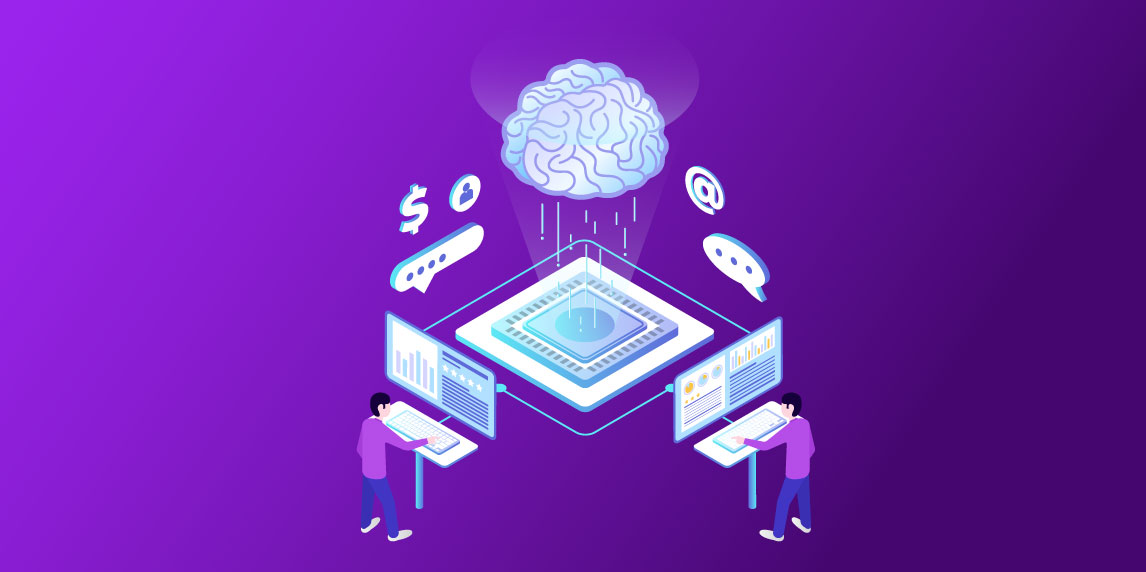Intelligent automation initially began with the deployment of robots to accomplish simple, repetitive, and rule-based tasks that could be taught. This was called Robotic Process Automation (RPA) and it could effectively take over up to 70-80% of your typical rules-based operational functions. Delegating such a large chunk of your executive functions to robots inevitably led to saving a huge amount of time and money for businesses.
But it didn’t stop there, people soon realized that RPA has certain limitations as it cannot process unstructured content. However, the advent of IPA that leverages both Artificial Intelligence and RPA surmounted this shortcoming, enabling the automation of unstructured content processing. Unstructured content is a challenge for over 80% of enterprises and it is growing at a rate of 50 – 60 % per year. The evolution of IPA gave rise to an exciting range of possibilities as unstructured content is ubiquitous across multiple industries and there is a wide range of use cases for automating such processes.
Here’s a look at how modern enterprises can leverage IPA:
1. Expedite Invoice Processing
There isn’t a single business out there that can escape the challenge of invoice processing. These invoices from multiple vendors flow in on a daily business from various sources and in different formats. The applications of RPA are limited in such a playing field of unstructured documents and require IPA solutions to step into the frame. With IPA processing invoices and automating payments becomes exponentially faster and more accurate while minimizing errors. Leaving this data-intensive, repetitive process to digital workers ensures that there are no more delays or errors in invoice processing. In addition, your business can benefit from better vendor relationships resulting from timely deposits.
2. Streamline Payroll
Payroll processing can be one of the most tedious and time-consuming tasks for HR. This is why IPA can play a significant role in streamlining the whole process and accelerating it. By automating the task, you can eliminate the need for employees to process huge spreadsheets and manually write out checks. By automating salaries, overtime, commissions, bonuses, raises, wage deductions, and expenses a lot of HR hours of effort can be saved and redirected towards other activities that absolutely demand their presence.
IPA can also benefit the HR department significantly by taking on additional payroll functions that would otherwise mandate human intervention. For example, verifying the bills or travel expenses submitted for reimbursement. While RPA would not be able to help in such a situation due to no prior rules established on how to do so, an IPA solution would most certainly be able to discern if the entities displayed on the submitted documents match the amounts specified in their notice for reimbursement. Fraudulent activities in this regard can be avoided saving the company a lot of money in the long run.
3. Enhance Customer Service
Customer service is an exciting space for IPA implementations as this technology can drive significant improvements in customer service. Intelligent chatbots can resolve queries much faster and eliminate the need to speak to an executive in person. IPA solutions can also provide swift and relevant responses to customers via intelligent email responses. The advent of Natural Language Processing (NLP) enables a convenient, conversational interface and responses to customer service requests. Ultimately this serves to expedite customer service eliminating delays. In addition, such solutions can scale easily to cope with a surge in customer service requirements. Case deflection through convenient self-service options powered by IPA solutions also serves to boost customer satisfaction and optimize the costs of customer service operations.
A high degree of personalization in customer service is another tremendous advantage of IPA-driven customer service. Such solutions can tailor recommendations and resolutions to customers based on their individual history and preferences, which is far more effective in raising customer delight and improving customer retention. If required, a human team member can be flagged for unusual or complex queries, but overall IPA solutions can handle the majority of customer service activities driving massive improvements for both the enterprise and its customers. Machine Learning (ML) continues to learn and improve over time so these solutions continue to improve raising the bar on customer service.
Intelligent Process Automation (IPA) can reduce your turnaround time exponentially and also provides the ability to scale as required. When implemented for a feasible use case, it can provide a significant ROI of up to 300% fairly quickly. Thus it is imperative for modern enterprises to harness this disruptive technology to streamline and optimize operations, function more intelligently and gain a competitive edge.
Gain a better idea of the possibilities of intelligent automation by reading Artificial Intelligence Trends for 2021 – Part 1/2. Alternatively, you could also explore What You Need to Know About the New Era of Intelligent Automation.
If you’re interested in finding out what automation can do for your business our team at Rapid Acceleration Partners would be glad to help. Our next-gen, AI-powered content intelligence platform RAPFlow enables full lifecycle AI orchestration on a single platform. When used in tandem with our RPA tool RAPBot, it provides end-to-end workflow automation capabilities that can be deployed in just weeks. You can even build your own use case and the platform can easily integrate with your existing systems. Book a demo to get a more detailed understanding of how our products can transform your business.




